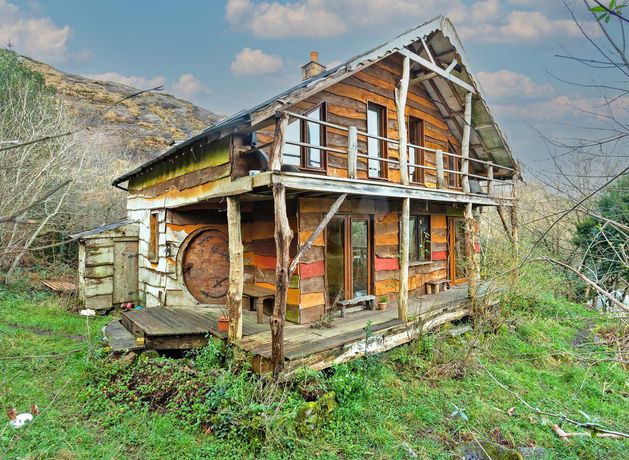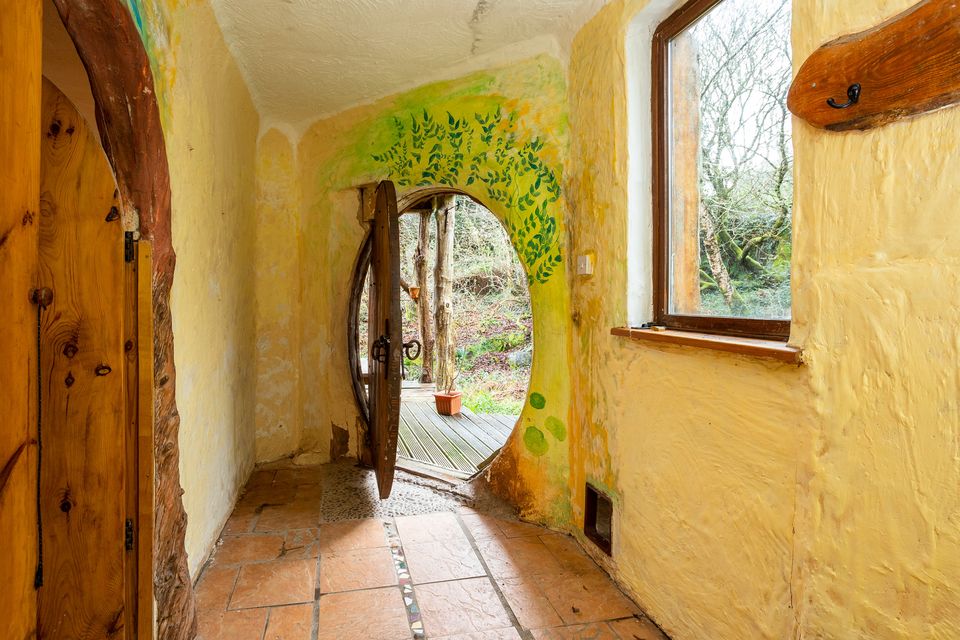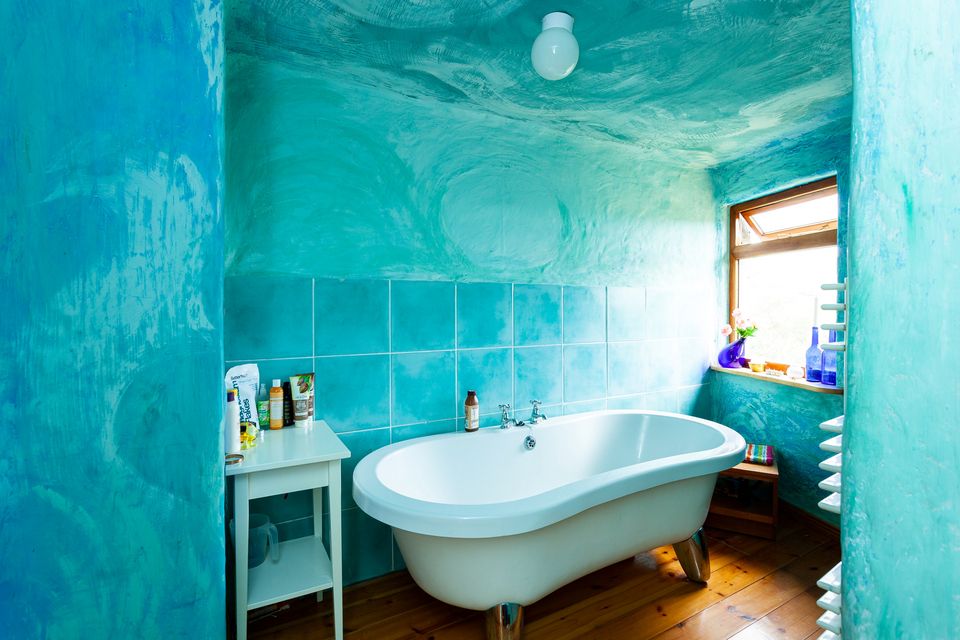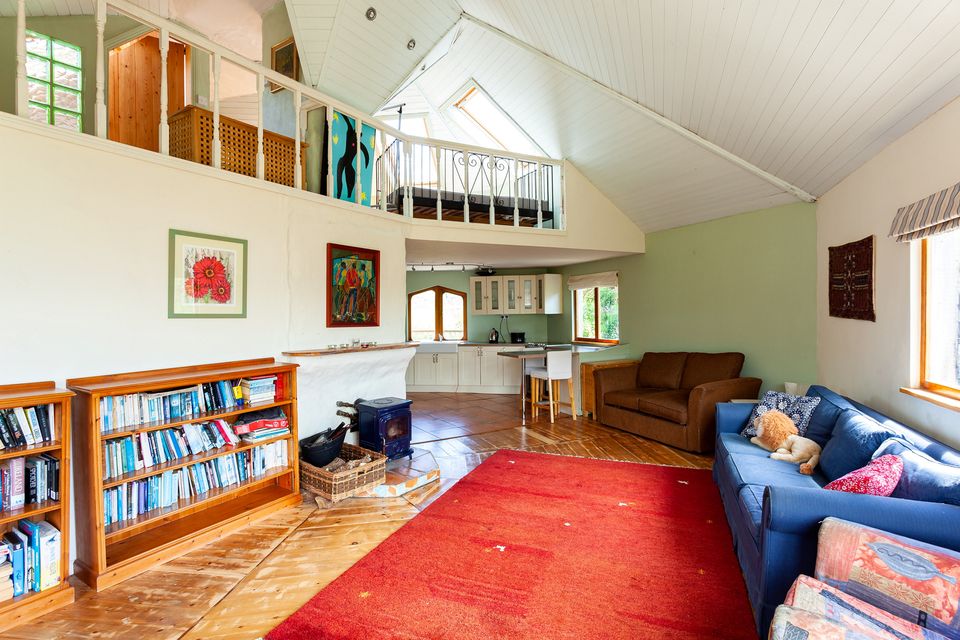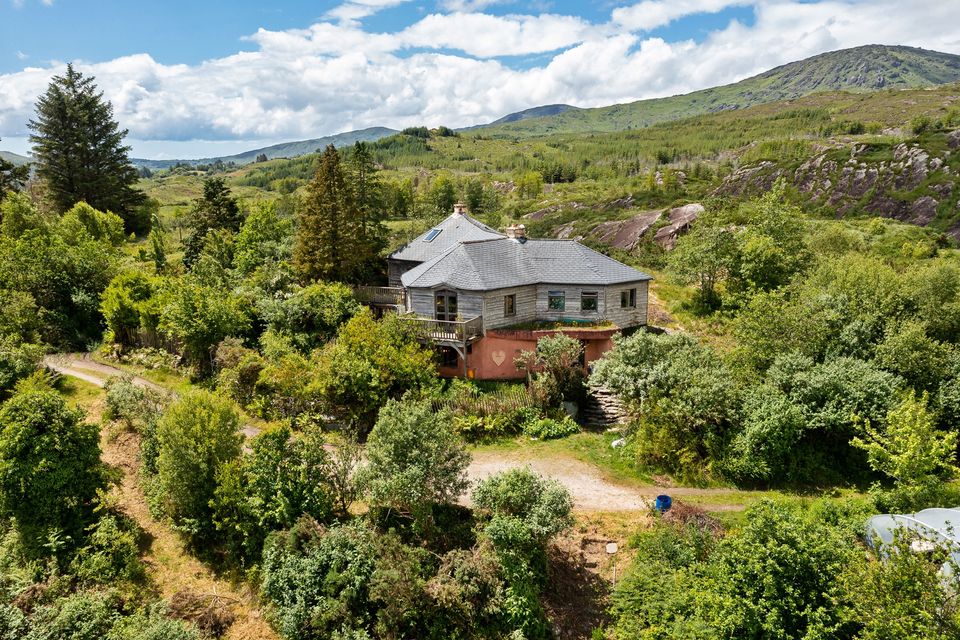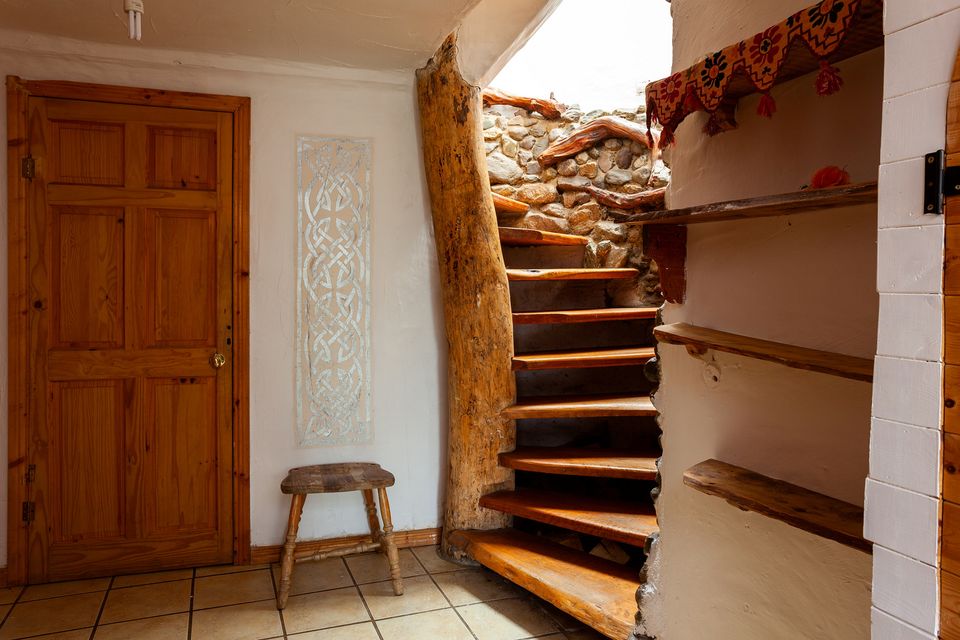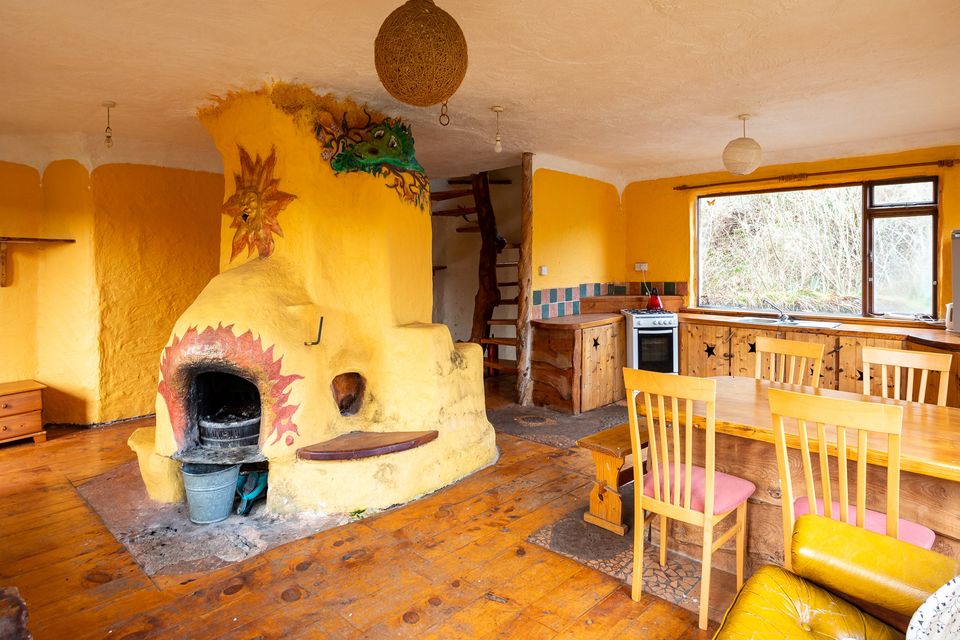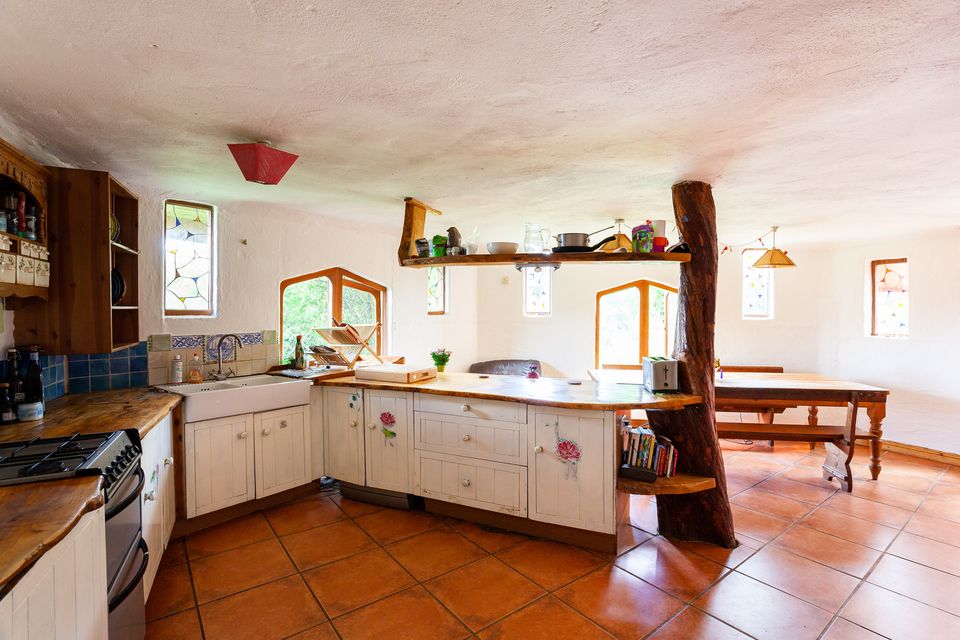Want to get back to nature? Choose between a three-bed homestead, a two unit five-bedroom annex – or the entire estate
Address: Derryduff More, Coomhola, Bantry, Co Cork
Asking price: €210,000 / €395,000
Agent: Sherry FitzGerald O’Neill (023) 883 3995
It’s been 50 years since BBC sitcom characters Tom and Barbara Good, played by Richard Briers and Felicity Kendall, quit the rat race in 1975 for a completely self-sufficient life raising chickens, recycling waste, brewing booze and growing vegetables in The Good Life.
Their madcap adventures struggling to live sustainably in suburbia next door to their socially ambitious neighbours, the Leadbetters, were the source of much humour and derision back in the day. Five decades on, as the world grapples with global warming and climate change, we’re all on alert to change the way we live.
In rural west Cork, one couple doing their own Good Life thing, albeit on a much bigger scale, is Tony and Helen Grubert.
Originally from Leigh-on-Sea near Essex, the pair, together with their two sons, moved to Ireland in 2000, swapping suburbia for a sprawling 148-acre hilltop farm in Derryduff in the Borlin Valley, between Bantry and Glengarriff, and the chance to live a fully sustainable, carbon neutral life off-grid, in harmony with their surroundings.
“Friends thought we were nuts,” recalls Helen
Today, they’re considered pioneers. The eco nirvana they’ve created, surrounded by 72,000 trees which they painstakingly planted to offset their carbon footprint, is seen as a blueprint for building back better with nature.
Honeysuckle’s circular front door
A former scientist and industrial designer, Tony has been “banging the ecological drum” as he puts it, for a long time. Helen, a minister and marriage celebrant is just as passionate about the planet.
“We can’t keep on taking without putting something back,” says Tony. “We need to be able to live within our means, not only financially, but long-term within our carbon means. The sustainability of our own lifetime, and the lives of our children and great grandchildren depends on it.”
“That sounds like evangelism. It’s not,” says Tony. “We never evangelise – we just try to lead by example. We’re practical enough to know that solutions have to be both equitable and comfortable.”
A bathroom at Honeycomb and Honeypot Annex
Their dream for Derryduff was to show that living sustainably needn’t be a sacrifice – even if at times they struggled to make it happen.
“We wanted to prove it was possible to build a carbon equilibrium for a reasonable price, using the best of tech, our knowledge and our wits,” says Tony.
He explains how the pair had looked all over the world – Canada, France, New Zealand – for somewhere to build, before settling on a farm in Bantry in 1992.
“We were looking for somewhere that fed the soul as well as our lifestyle,” recalls Helen. “The minute Tony walked on the land here, he knew immediately what he was going to do with it.”
The interior of Honeycomb and Honeypot Annex
It took another eight years of haggling to convince the owner to sell it to them. “When we eventually got the keys, the roof had fallen in,” says Tony.
The first thing they did was renovate the old farmhouse, where they still live, and add a wraparound extension.
In 2003, they built the first of their carbon positive properties. Honeysuckle is a three-bed Appalachian-style homestead, complete with balcony and veranda. Set on 57 acres, it’s bordered on one side by a stream and waterfall.
Honeycomb and Honeypot Annex
Honeycomb and Honeypot Annex, a five-bed, three-bath, 2,400sq ft property in two units, connected via a secret passageway, took three years to construct, starting in 2005 and finishing in 2008.
Built entirely by hand with a lot of love and attention, Tony and Helen have taken great care to ensure that both builds slot into their surroundings, rather than superimpose themselves onto it, which is reflected in the design: timber frame construction clad in roughly-hewn planks.
“The cladding is actually felled trees from Killarney National Park,” says Tony proudly. “When they were widening the road through the park in the 70s, they cut down about 600 trees – big oak and Monterey cypress. We heard they were being stored in a yard in Whitebridge and bought the lot.”
A staircase at Honeycomb and Honeypot Annex
Inside, he has used his timber haul to create kitchen cupboards, carve out tops, fashion flooring and use as decorative stair supports. “As well as anything that didn’t require a certified structural timber,” he says.
As for the tech, it’s impressive. A bio-digester reed bed processes and recycles wastewater and sewerage. “It’s perfectly[drinkable],” explains Tony, who has happily demonstrated the fact to guests over the years to much amusement, “but we use it to fill the pond. “We also have geo thermal heating and our own fresh water source and water supply, which comes straight from the mountain,” he says.
Honeysuckle’s kitchen
Honeysuckle has a fancy German Kachelofen, a type of masonry stove that retains heat and releases it throughout the day.
Honeycomb and Honeypot annex is so well insulated, with Warmcel cellulose fibre in the walls, K glass windows and Vermiculite render, running costs were averaging around €1.40 a day before the energy price hikes.
The only thing they don’t have that they’d like is solar panels. “At the time, it wasn’t financially feasible,” says Tony. Still, each property has been built to support their placement, making it a possibility in the future.
The estate is also home to a barn, wormery, vegetable garden and orchard.
The kitchen at Honeycomb and Honeypot Annex
Tony and Helen have run it as a charity, setting up the Unicorn Eco Foundation, teaching hundreds of guests from all over the globe sustainable building methods, which was always at the heart of their grand plans.
“We’ve had many an email saying, ‘Do you remember us? We have done it, built our own ecological house’. That really chimes. We were sowing the seeds, hoping they’d take root, and they did,” says Tony.
Now, after 25 years dreaming, planning, designing, building and educating, the pair are selling up. “This place needs young blood,” says Tony.
Honeysuckle, Honeycomb and Honeypot are on the market, but there’s also an opportunity to purchase the entire estate, farmhouse included, should the right buyer come along.
“We’re looking for kindred spirits, people who are like-minded and motivated, who share our dream and want to take it to the next level,” says Helen. “But we’re not dictating.
Honeysuckle is for sale for €210,000; Honeycomb and Honeypot Annex has an asking price of €395,000, both through Sherry FitzGerald O’Neill.
#Fully #sustainable #carbonpositive #homes #rural #Cork #hand #built #wood #Killarney #National #Park

